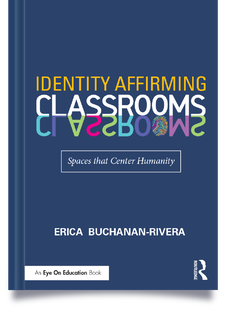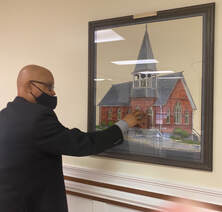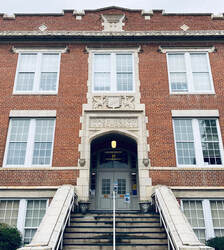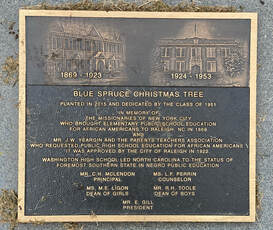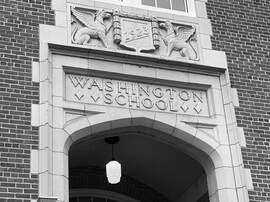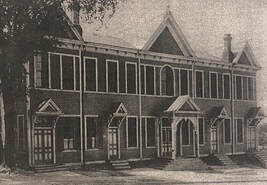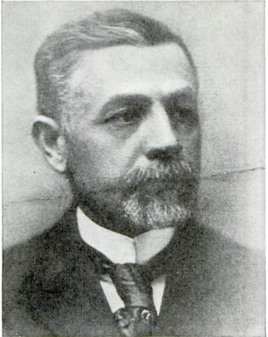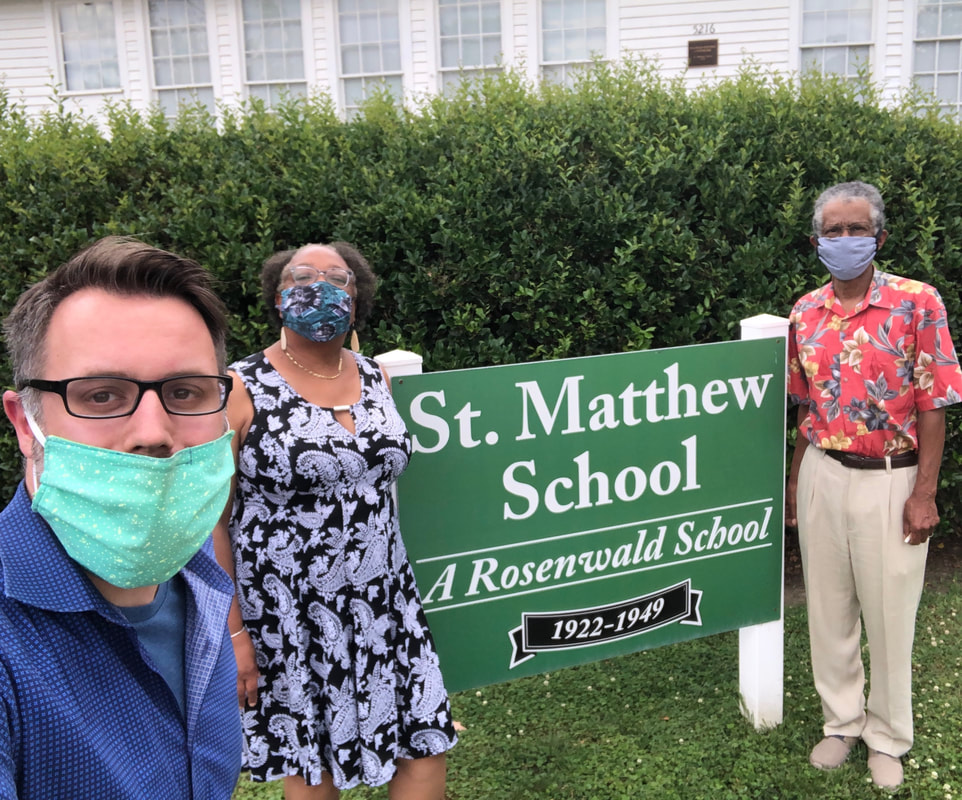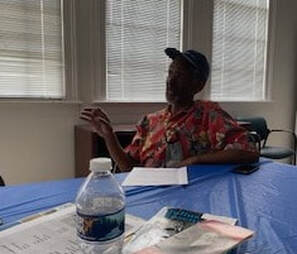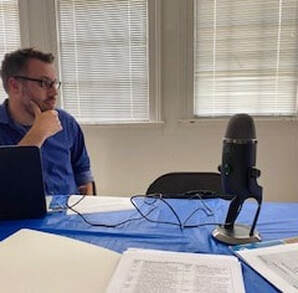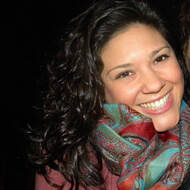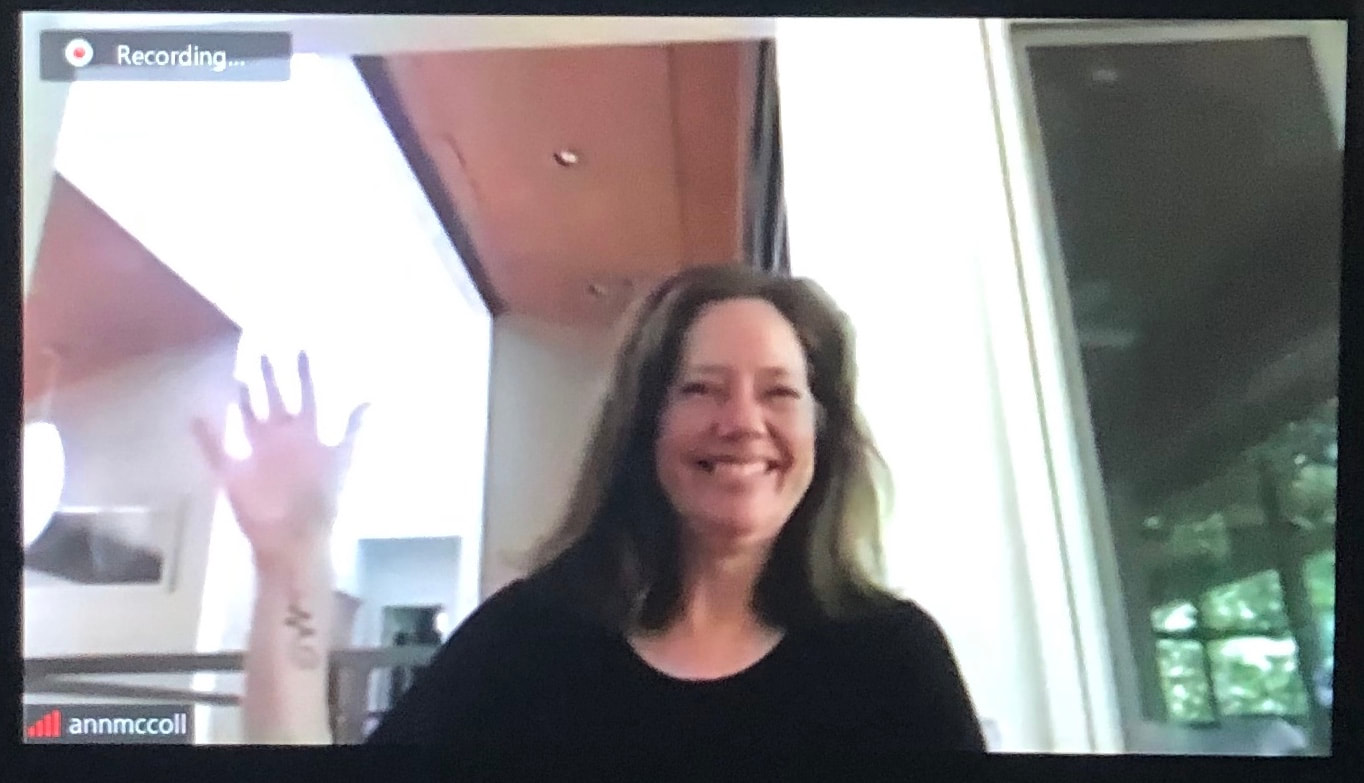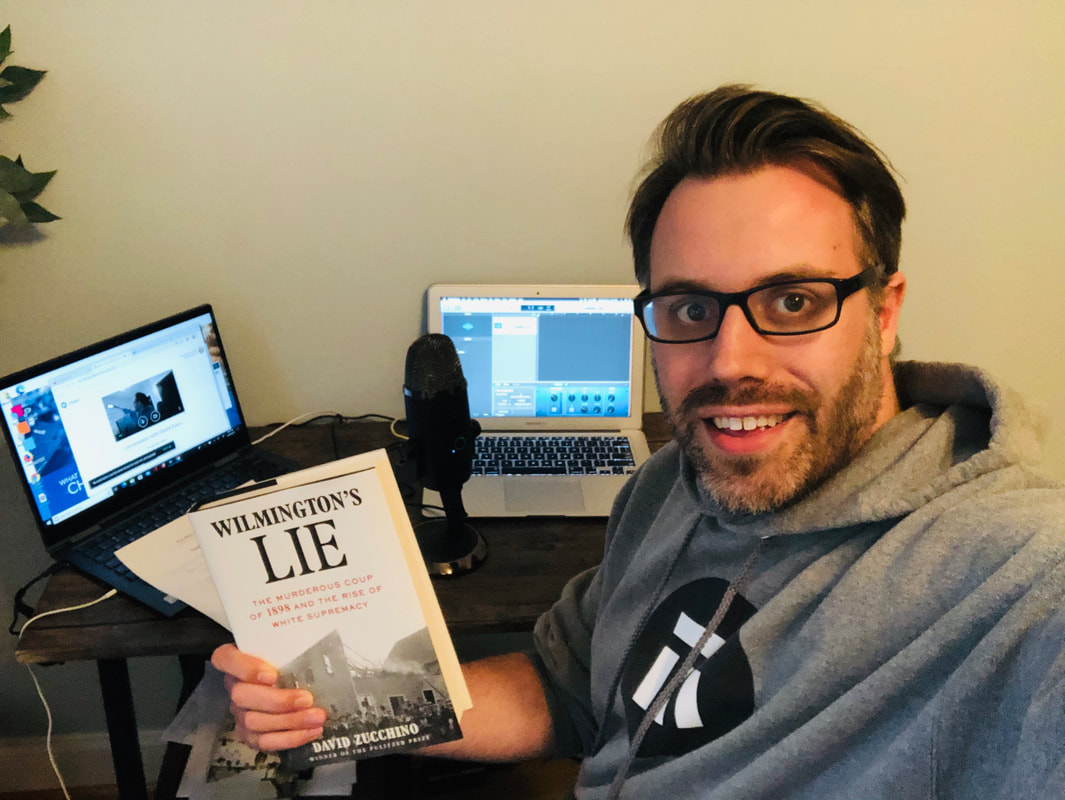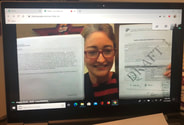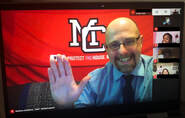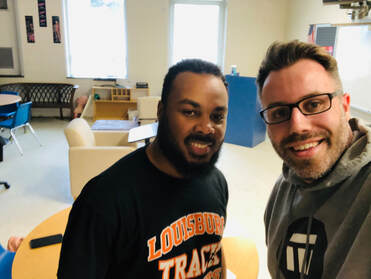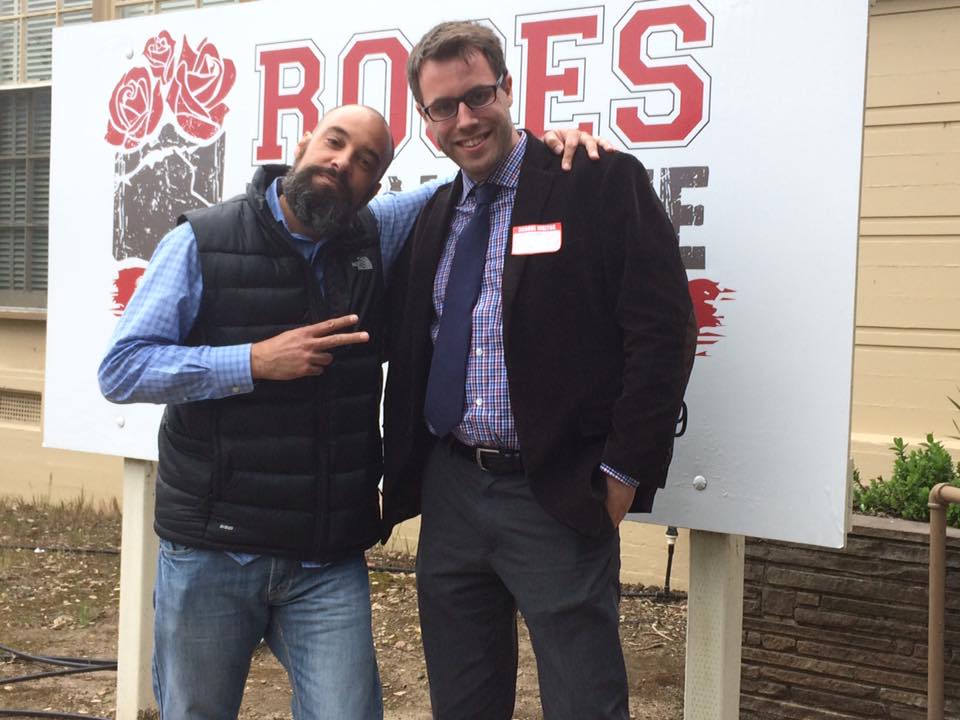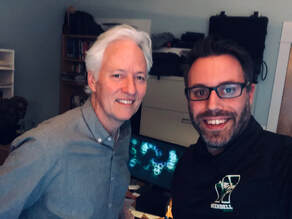February 11th, 2023
Episode 8: Identity Affirming Classrooms
|
All instruction is culturally responsive. The question is: to whose culture is it responsive? The idea that public schools should focus on nothing but "the basics" of reading, writing, and arithmetic is not only wrong morally, but it's wrong scientifically too, because the research is crystal-clear: feeling seen, safe, and affirmed in the classroom is literally a prerequisite for learning anything else. In this episode, Bria Wright joins as co-host and we dive into identity and how we can tap into our own as well as those of our students to become more culturally and community-responsive in our practice. Special guest Dr. Erica Buchanan-Rivera, author of the book Identity Affirming Classrooms: Spaces That Center Humanity joins to ground our conversation in the research and also her personal experience as an educator and director of equity for Washington Township Schools, a district on the outskirts of Indianapolis, Indiana. Thanks also to Dr. Jeff Duncan Andrade and Dr. Fabienne Ducet for contributing as well.
Music provided by Blue Dot Sessions, the theme song Mirrors is by Joseph McDade. |
|
August 6th, 2022
Episode 7: Asian Americans & #NCed
|
Description
Asian Americans have long occupied a precarious position in American society; they are just as likely to be valorized as the so-called "model minority" as they are ostracized and seen as perpetual foreigners. During this episode, we take a deep dive into how we got here, and provide perspectives on ways teachers need to see, understand, and interrupt anti-asian stereotypes. We'll hear from local Asian American students, parents, and educators at Hortons Creek Elementary in NC to get their perspective on how schools can and should become more culturally and community responsive in order to better serve all students and families who are part of our community. |
|
Guests include:
Dr. Sandy Chambers - Principal at Hortons Creek Elementary
Supriya Vasudevan - 3rd Grade Teacher at Hortons Creek Elementary
Suruchika Bhatia - Lead IA at Hortons Creek Elementary
Nicki Lee - Counselor at Hortons Creek Elementary
Aravand - High School Student
Navam - Middle School Student
Dr. Nicholas Hartlep - Chair of the Department of Education Studies at Berea College, creator of the Model Minority Stereotype Project
Dr. Chris Suh - Assistant Professor of History at Emory University
Soukprida Phetmisy - National Senior Managing Director, Asian American & Pacific Islander Community Alliances at Teach for America
Jimmy Patel-Nguyen - Communications Director, North Carolina Asian Americans Together (NCAAT)
Ricky Leung - Co-founder of NCAAT and Program Director at NCAAT in Action
Music provided by Blue Dot Sessions. The theme song "Mirrors" is by Joseph McDade.
Dr. Sandy Chambers - Principal at Hortons Creek Elementary
Supriya Vasudevan - 3rd Grade Teacher at Hortons Creek Elementary
Suruchika Bhatia - Lead IA at Hortons Creek Elementary
Nicki Lee - Counselor at Hortons Creek Elementary
Aravand - High School Student
Navam - Middle School Student
Dr. Nicholas Hartlep - Chair of the Department of Education Studies at Berea College, creator of the Model Minority Stereotype Project
Dr. Chris Suh - Assistant Professor of History at Emory University
Soukprida Phetmisy - National Senior Managing Director, Asian American & Pacific Islander Community Alliances at Teach for America
Jimmy Patel-Nguyen - Communications Director, North Carolina Asian Americans Together (NCAAT)
Ricky Leung - Co-founder of NCAAT and Program Director at NCAAT in Action
Music provided by Blue Dot Sessions. The theme song "Mirrors" is by Joseph McDade.
January 11th, 2022
Episode 6: Washington School (Part 2: Legacies)
|
Description
The Washington School is likely the oldest continually-operating public school in the city of Raleigh, since we can trace its beginnings all the way back to the 1860s. During Part 1, we learned about the school's origins and the critical community organizing that took place in order to establish Raleigh's first Black High School in 1923. Today, Washington is a Gifted and Talented Magnet Elementary School and the children and staff that fill its classrooms today look different than they did nearly a hundred years ago. Join Dr. Chaunte Garrett and Michael Parker West as they dive into the legacies of this important community landmark and confront some important questions that get at the heart of modern magnet schools and the larger unified Wake County Public School System. Resources & References
|
|
Episode 5: Washington School (Pt 1: Origins)
|
Description The Washington School is now an elementary magnet school within the Wake County Public School System, but the origins of Washington go all the way back to the late 1860s. The building that stands today was built in 1923 and was Raleigh's first public Black high school, but the school first began as one of North Carolina's earliest schools for African American children and was originally established by Northern, Christian missionaries. It grew to become an important incubator of Black genius and was a cultural and community landmark for Raleigh's African American community. According to J.W. Yeargin -- one of the community leaders who helped found the Black High School -- Washington was once the only school in America for African American children located on the main street of a state capitol. This is the first of a two-part series on Washington. Part 1 dives into the origins of the Washington School; how it got started, who it's named for, and the movement to establish Raleigh's first public high school for African Americans in the early decades of the 20th century. Part 2 will examine the legacies of Washington right up to the present day. Join co-hosts Dr. Chaunte Garrett and Michael Parker West as they learn from some brilliant guests to bring these important stories to life. Special Thanks for contributing to this 2 part series: Dr. Chaunte Garrett John Baker III Martine Sainvil Joyce Hollyday Michelle Lanier Sarah Caroline Thuesen Tyrone Street James Monroe Mary Haywood Christine Tuttell Dan Gridley Bob Grant Jennifer Ijeoma Janet Pride Resources & References
|
Trailer
|
Episode 4: Jeanes Teachers, Rosenwald Schools, & Community Organizing as Education
|
Description North Carolina has more Rosenwald Schools than any other state but today, Rosenwald Schools are something of an endangered species. Many of them have been destroyed and most that are still standing remain in disrepair. How many of us are standing on top of history that we just don't know? What impact might that have on our teaching and school leadership? Today we dive into the incredible local history around Rosenwald Schools, the Jeanes Teachers, and how community organizing was a central tenet of their overall success. This episode was recorded on location at the St. Matthew Rosenwald School, and I'm joined by Bettie Murchison, co-founder of the North Carolina Rosenwald Schools Coalition, and Pryce Baldwin, a legendary and retired WCPSS educator and former administrator for the Helping Hands Project of Wake County, which seeks to provide African American mentors for African American boys in elementary and middle schools. Mr. Baldwin is also a member of the St. Matthew Baptist Church and was instrumental in saving the building from planned demolition in the early 1990s. Both Bettie and Pryce attended NC Rosenwald Schools in their youth. Thank you again to Aviva Kempner and the Ciesla Foundation for your support of this project, and to Ann McColl of the Innovation Project of North Carolina. Hosted by Michael Parker West. DONATE to help local Rosenwald Schools
|
Episode 3: Wilmington, Reconstruction, and the Origins of K12 Schools in NC
|
Description Renowned educator Gloria Ladson Billings who mainstreamed the idea of culturally responsive pedagogy doesn’t talk about the so-called achievement gap. She talks about the education debt. And she’s right to do so. What is owed to the schools and communities that have been historically and deliberately divested and marginalized? I don’t have an answer to that question, but I believe that’s the conversation we need to be having and the work we need to be doing. Almost all future episodes of this podcast are going to focus on individual schools and communities, and the unique aspects of their history, place, and context. But before we get there, it’s important we spend some time unpacking the historical foundations of our public schools in North Carolina. Having a fuller understanding of the foundations of our schools in the past changes how we approach solutions today. It changes the conversations we have, the questions we ask, and the actions we take as a result. This week, we’re going to take a look at the intentional inequities baked into the foundations of North Carolina Public Schools. Where did they come from? How did they start? And most importantly, how do we use our unique identities right now in order to build coalitions that seek to see, understand, and interrupt business as usual. This episode features guests David Zucchino, the Pulitzer Prize-winning author of the book Wilmington's Lie, Ann McColl President and co-founder of the Innovation Project of North Carolina, and Courtney Parker West, a leadership development coach, racial equity trainer, and community organizer. She’s also my wife and partner. I hope you’ll join me as we continue this journey of learning and unlearning. Hosted by Michael Parker West. Resources & References
|
Episode 2: Power and Pushback
|
Description Determining what our kids learn in schools can be a hotly contested and controversial process, and politics almost always have a way of influencing the outcome. This week, we'll dive into student perspectives on creating more relevant, socially conscious, and community-responsive curriculum in North Carolina, and what forces currently stand in the way. Middle Creek High School Students enrolled in "Hard History & Civic Engagement" pilot course join our conversation, along with their teacher Mr. Matthew Scialdone. We'll also hear from Angie Scioli of Leesville Road High School and co-founder of Red4EdNC to talk about a special report that Red4EdNC recently released on the revised Social Studies standards in NC K12 education. Join me as I learn how we can better actualize the learning and liberation that our students and families deserve. Hosted by Michael Parker West. Resources & References
|
Episode 1: Grounding in Place & Purpose
|
Description What does it mean to be community responsive and why does it matter for educators and school leaders? In this episode we'll ground this project in place and purpose. Join host Michael Parker West, Assistant Principal in Wake County, North Carolina on a journey of learning and unlearning what it means to be effective students of our students and their families. Special thanks to our guests on this episode: Steven Gupton of Louisburg High School and John Biewen, host of the podcast series Scene on Radio from the Center for Documentary Studies at Duke University, with contributions from Dr. Jeff Duncan-Andrade professor of Raza Studies at San Fransisco State University and founder of the Roses in Concrete Community School in Oakland, California. Music by Joseph McDade and Blue Dot Sessions. Resources & References
|








